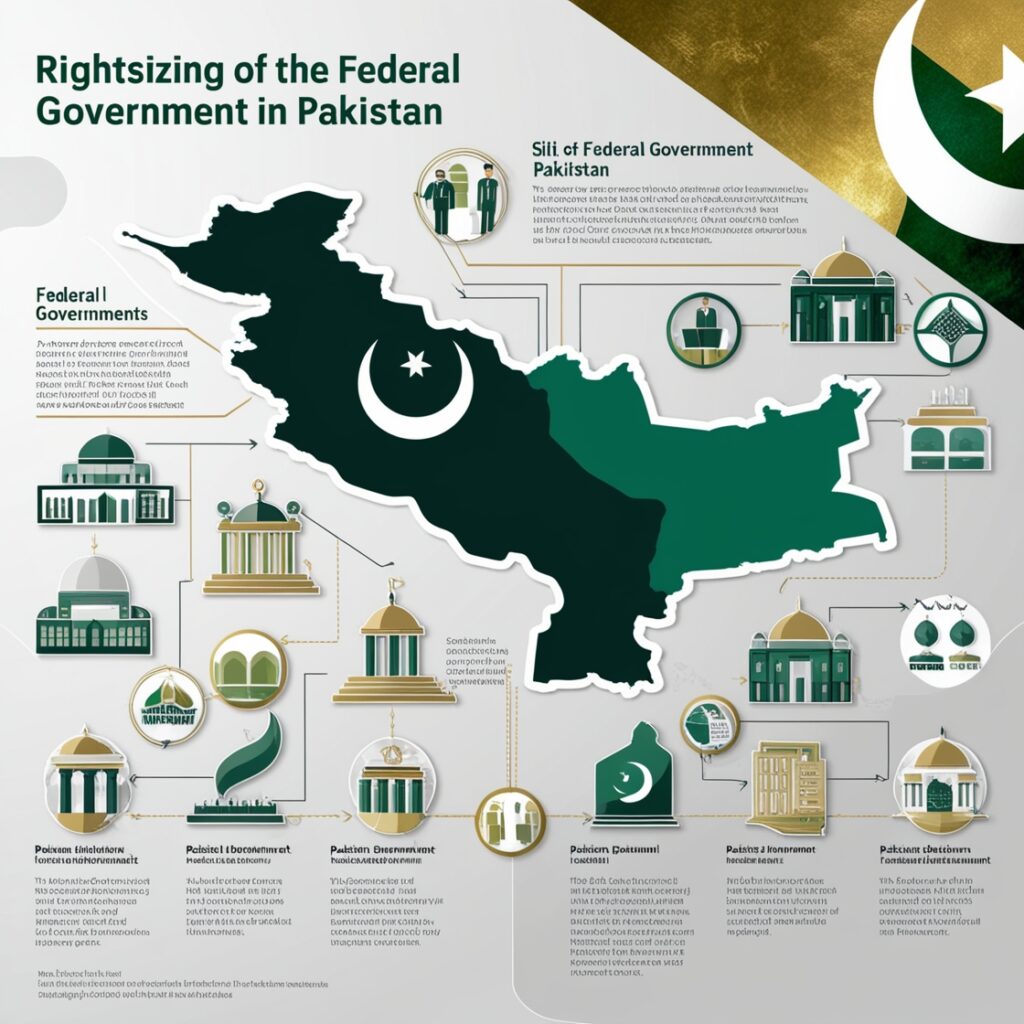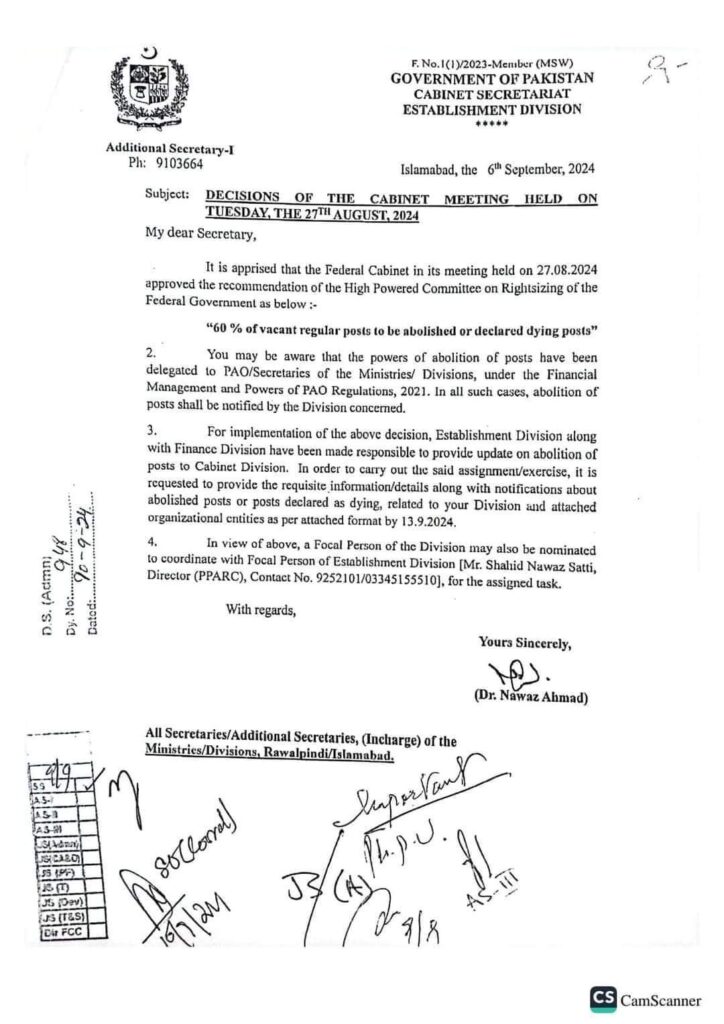The Rightsizing of the Federal Government in Pakistan: A Comprehensive Analysis

Introduction
The Government of Pakistan has recently taken a significant step towards streamlining its operations and improving efficiency through the implementation of a rightsizing policy. This policy aims to reduce the size of the federal government by abolishing or declaring as “dying posts” a substantial number of vacant regular positions. In this article, we will delve into the key aspects of this policy, its implications, and the potential benefits it may bring to the country.
Key Points of the Rightsizing Policy
- Abolition of Vacant Posts: The policy mandates the abolition of 60% of all vacant regular posts in the federal government.
- Declaration of Dying Posts: Additionally, a significant number of posts will be declared as “dying posts,” indicating their redundancy or obsolescence.
- Delegation of Powers: The authority to abolish posts has been delegated to PAOs (Public Accounts Officers) and Secretaries of Ministries/Divisions, streamlining the process.
- Notification Requirement: All abolished posts must be formally notified by the concerned Division.
- Establishment Division and Finance Division Responsibility: These divisions will be responsible for monitoring and reporting on the progress of post abolition to the Cabinet Division.
- Focal Person Appointment: Ministries/Divisions are required to appoint a focal person to coordinate with the Establishment Division on the implementation of the policy.
Potential Benefits of Rightsizing
- Improved Efficiency: By reducing the size of the federal government, the policy aims to enhance efficiency and reduce bureaucratic red tape.
- Cost Savings: The abolition of vacant posts will lead to significant cost savings for the government, which can be allocated to other priority areas.
- Enhanced Accountability: A smaller government structure can potentially improve accountability and transparency.
- Focus on Core Functions: By eliminating redundant positions, the government can concentrate on its core functions and deliver better services to the citizens.
Table: Estimated Impact of Rightsizing
FAQs
- What is the rationale behind rightsizing the federal government?
- The government aims to improve efficiency, reduce costs, and enhance accountability through a smaller and more streamlined structure.
- How will the policy be implemented?
- The policy will be implemented through the abolition of vacant posts and the declaration of dying posts, with delegated authority to PAOs and Secretaries.
- What are the potential benefits of rightsizing?
- The potential benefits include improved efficiency, cost savings, enhanced accountability, and better service delivery.
- Are there any concerns about the impact of rightsizing on government services?
- There may be concerns about potential disruptions to government services during the implementation process. However, the government has assured that necessary measures will be taken to minimize any negative impacts.
Conclusion
The rightsizing of the federal government in Pakistan represents a significant policy initiative with the potential to bring about positive changes. By reducing the size of the government and streamlining its operations, the policy aims to improve efficiency, reduce costs, and enhance service delivery. While there may be challenges to overcome, the potential benefits of this policy make it a worthwhile endeavor.
